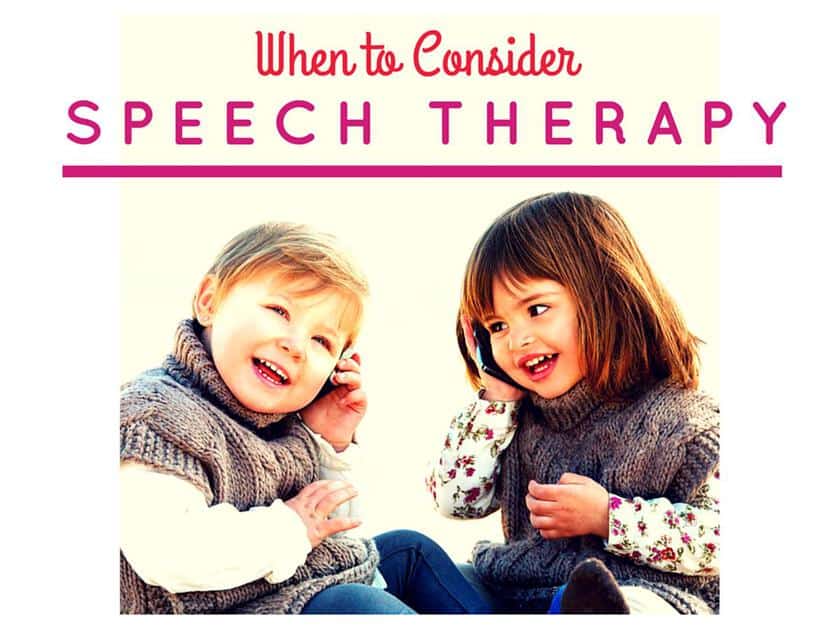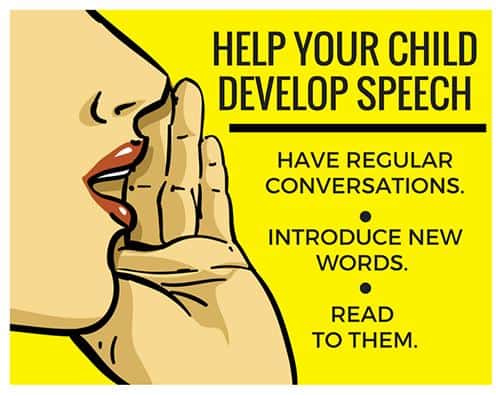
When a child doesn’t reach a milestone “on time”, it can make parents anxious. Even though children develop at different rates, it can still be worrisome if your child doesn’t start speaking when most children do.
For some children, speech therapy is appropriate and for others it’s simply a matter of your child not being ready yet. But how does a parent know? And if speech therapy is necessary, how do you proceed? Here are some tips and ideas.
What’s “normal”?
According to experts, the following milestones are considered “normal” for babies and toddlers:
* Under one year of age, it’s considered normal for babies to interact verbally with their environment by making sounds. These sounds are the precursors to speech.
* At around 12 to 15 months of age, babies begin to mimic the sounds of their native language and they begin by saying single words. They can follow simple, one-step directions.
* From 18 months to 2 years is the time when vocabulary increases and toddlers begin to put two words together, like “ball round.”
* Between 2 and 3 years, speech usually takes off. Vocabulary and comprehension increase. If your child is, for example, 3 years old and only putting two words together, this might be a delay that requires therapy.
A Combination of Factors
Some experts point out that speech delay alone is not necessarily cause for concern, but speech delay accompanied by other issues might be more serious. For example, if your child is behind schedule for speech and also exhibits other unusual behaviors, it might mean it’s time for therapy. Such unusual behaviors include:
* Lack of nonverbal communication, such as eye contact, smiles, babbling, and other socially engaging behaviors
* An inability to follow directions or even hear them
* Poor memory, particularly short-term
* Extreme frustration when trying to speak
Talking to a Prospective Therapist
If you have concerns about your child’s speech development, a good place to start is with your pediatrician. They can give you an opinion regarding whether or not speech therapy should be considered and can recommend a speech therapist if necessary.
It also won’t hurt to get a second or even third opinion from another pediatrician, and you might want to talk to other therapists besides the one your pediatrician recommends. When it comes to getting your child the help he or she needs, it pays to be a little choosy. When you’re looking for a therapist, here are some things to keep in mind:
1. Does the therapist have a demeanor that you like and feel you cqn work with?
2. Does your child seem comfortable around the therapist?
3. What kind of approach does the therapist use?
If you get any bad vibes or just aren’t comfortable with the therapist, it’s okay to keep looking.
For more information please visit the American Speech-Language-Hearing Association | ASHA


